CSAS Awards 2021-22
McColl Fellowship
The McColl fellowship provides a year of funding to a PhD candidate to finish their dissertation.
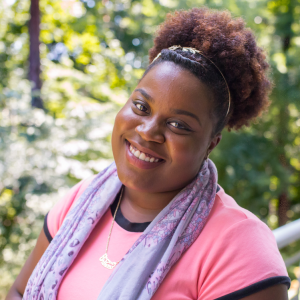
Diamond Holloman
Jacquelyn Dowd Hall Fellowship
The Jacquelyn Dowd Hall Research Fellowship is made possible by its namesake fund, in honor of the founding director of the Southern Oral History Program The award provides one graduate student with support to pursue research pertaining to oral history during the summer.
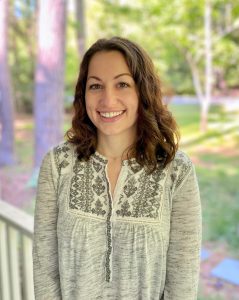
Irene Newman
Plambeck Award
The Plambeck Award supports summer funding for an undergraduate student to work on an oral history project.
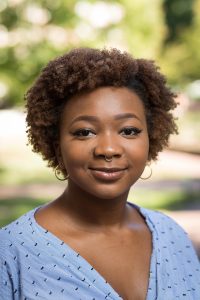
Montia Daniels
Vogel Awards
The Vogel Award provides funding for an undergraduate student who wishes to spend the summer working with the Southern Oral History Program.
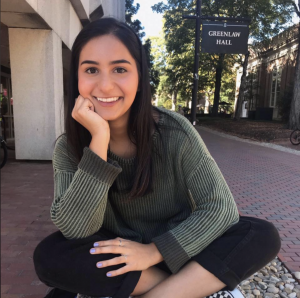
Alexandra Domrongchai
Alexandra Domrongchai is a first-generation American and college student in the American Studies department at UNC. She will use her Vogel Award to support her research project, Documenting Thai America Through Food, which examines the Thai diaspora and uplifts Thai voices and narratives with mixed media approaches. Domrongchai grew up in a family of chefs and animal lovers, so in her spare time she loves to cook and continue the animal-loving tradition by doing rescue work.
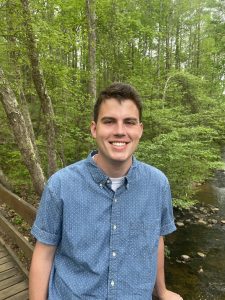
Hunter Randolph
Hunter Randolph is a senior in the American studies department with a concentration in folklore. With support from the Vogel Award, he’ll continue work on a research project focusing on Neolia Cole Womack’s Cole Pottery shop in his hometown of Sanford, North Carolina, where he grew up frequenting, watching her work, and listening to countless stories. He has continued to pursue his interests in North Carolina pottery-making traditions in his coursework and as a student assistant in the Southern Folklife Collection in Wilson Library.
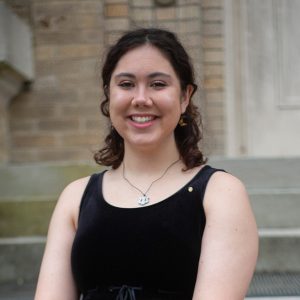
Sophie Therber
Sophie Therber is a rising senior majoring in global studies and human development & family studies (HDFS) at UNC. With support from the Vogel Award, her research project, Simultaneous Disasters: Extreme Weather Events and COVID-19, will investigate how COVID-19 and climate change have simultaneously affected eastern North Carolina immigrant communities and slowed recovery effort from past hurricanes. She became interested in oral history while taking the service-learning course, Heritage and Migration, focusing on the stories of immigrants in North Carolina. Through this course, she had the incredible opportunity to travel to Ocracoke and conduct an oral history workshop for high school students and their families. Therber is excited to use her research this summer to prepare for her senior honors thesis in the HDFS department next year. Outside of academics, she is a proud member of the UNC Marching Tar Heels and a Buckley Public Service Scholar.
CSAS Summer Grant
The CSAS summer research grant provides support for dissertation research, thesis research, and other academic projects pertaining to the American South.
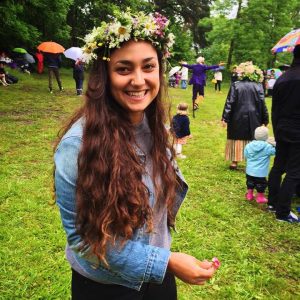
Madelaine Azar
Building on existing archaeological scholarship on ancient indigenous art and iconography in the American South, my dissertation project will examine the political and religious significance of decorated pottery vessels produced by American Indians in northeast Arkansas and southeast Missouri during the Late Mississippian period (AD 1350-1550). This ceramic corpus has never been comprehensively evaluated and thus constitutes an untapped dataset of ancient art that could offer new insights into the articulation between politics and religion in the Mississippian world. In addition to my analyses, I will construct a virtual museum exhibit featuring photographs and 3D models of these vessels.

Reed Deangelis
Following the Great Depression, the federal government sponsored a nationwide “redlining” initiative that redistributed critical housing resources away from urban Black communities and into the coffers of up-and-coming White suburbs. My research will examine the neighborhood-level mechanisms linking historical redlining to contemporary population health disparities in Nashville, Tennessee. To test these mechanisms, I will merge recently digitized federal redlining maps with survey, biomarker, and neighborhood data from a community sample of Black and White adults who lived in Nashville between 2011 and 2014. My study will have implications for public health and the reimagining of urban centers in the South.

Ehren Dohler
Mobile homes are the main affordable housing option in much of the rural South, including many disaster-prone communities. Yet little is known about how people living in mobile homes are impacted by and recover from natural disasters. This study will use data published by the Federal Emergency Management Agency and state disaster planning documents to examine how mobile home residents in North Carolina accessed disaster assistance after Hurricane Florence. As the rural South faces more frequent natural disasters, understanding how assistance systems facilitate or hinder mobile home residents’ recovery will help researchers, policymakers, and rural communities prepare for storms to come.

Caroline Efird
Caroline’s dissertation research seeks to uncover social and cultural factors which underlie racialized differences in perceptions of mental health in rural North Carolina. Using social science and humanities-based methods, she will examine how the USA’s racialized social system influences perceptions of mental health for Black and white residents of rural communities through a qualitative analysis of health-related oral history interviews. Additionally, Caroline will use survey data to quantitatively examine racial and gender variation in self-reported mental health outcomes from a representative sample of over 30,000 North Carolinians.
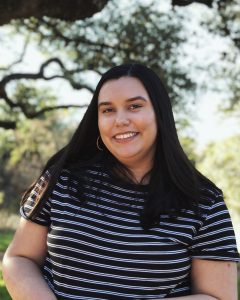
Annie Elledge
My research project traces Durham’s history as the “Diet Capital of the World” through archival work on the city’s numerous weight loss facilities. By tending to the relationship between corporeal control and place, I ask how a city gets created into a dieting capital. In particular, I consider how Durham’s weight loss facilities create disciplinary dieting landscapes that are mirrored across the Southeastern United States. Ultimately, I ask what gets revealed about Durham when telling its history as a place of dieting, restriction, and the control of fat bodies.
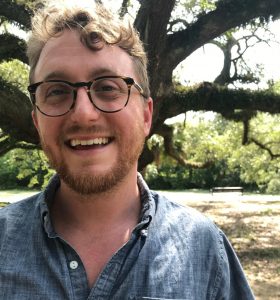
Dane Emmerling
Training is one of the most common and least rigorously evaluated interventions targeting racism. The Racial Equity Institute’s two-day Phase 1 workshop is a promising intervention which provides a historical analysis of how structural and institutional racism has been created and sustained. For the past 2.5 years REI and I have been engaging in a participatory research partnership to understand and evaluate their approach to confronting structural racism. The framework of Phase 1 is a departure from trainings focused exclusively on implicit bias, cultural competency, or prejudice that leave structures unanalyzed and unchallenged. This framework can serve as a necessary support in (1) identifying and building the policies, practices, and norms that promote racial equity within public health and health care, and (2) designing and testing antiracism system change interventions.
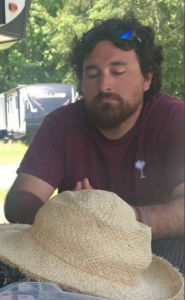
Zachary Faircloth
My project positions Horry County, South Carolina, as a living place. In the past 50 years the county’s population has increased by over 500% and it, like so many rural and semi-rural places, is currently gripped in debates around continued exurban development. The recent increase in calamitous flooding as a result of Hurricanes Matthew and Florence has only heightened the stakes of these debates. I turn to the Waccamaw River as a site where macro-level discourses around development, growth, and cultural change are brought to bear in the everyday, documenting the quotidian negotiation of these discourses in the lives of people who call the river home.
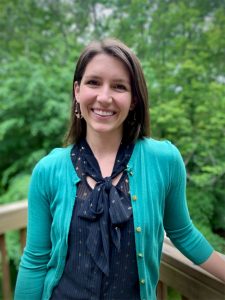
Emily Hutchens
Emily Forrest Hutchens is a PhD student in Health Behavior at the UNC Gillings School of Global Public Health. She is a North Carolina native who earned her Masters of Science in Public Health at UNC and Bachelors of Science in Food Science and Nutrition at North Carolina State University. Her experience teaching in the alternative school setting in Raleigh inspired her interest in how experiences of racism and violence affect individuals’ education, careers, and health, especially in the US South. She applies this interest to her role in Emergency Medicine at the UNC School of Medicine, where she has worked for several years on research concerning workforce training and education in pediatric and obstetric care in North Carolina. Summer funding from CSAS will allow her to expand her qualitative work in EMS, which examines how experiences of racism, policing, and protests affect workforce diversity.
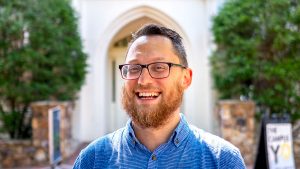
Michael Levine
I research a censored musical style (reparto) produced by Black Cuban artists, and its circulation through an illegal, alternative internet called “el paquete semanal.” Reparto music is banned from Cuban media. Through el paquete semanal, a collection of digital material distributed on USB sticks in Cuba as a substitute for broadband internet, the musical style has become a popular form of youth music. Through the Center for the Study of the American South’s Summer Research Award, I will interview interlocutors in Miami and Havana whom I have not seen in over a year due to COVID-19 travel restrictions.
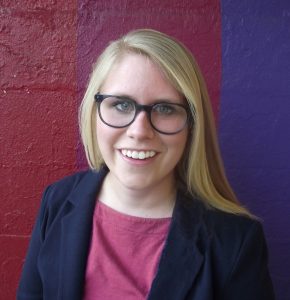
Kari Lindquist
In my research, I study how Southern Appalachian women folksingers in the 1950s-70s used varying narrative perspectives in woman as bird folksongs: “Come All Ye Fair and Tender Ladies (Little Sparrow)” and “Molly Bawn.” By positioning themselves in relation to birds, I argue the singers vary the narrative voice between first and third person to establish authority in the oral tradition, and to create intimacy through direct address to audiences.

Smita Misra
An era defined by anti-immigration sentiment and restrictive asylum policies has also seen a rise in migrant-advocacy efforts and migrant resistances. These concurrent responses to immigration restriction employ strategies that both compete with and complement each other. My research unpacks a social movement of physician-advocates called Asylum Medicine. I challenge the taken-for-granted assumption that clinical objectivity and political advocacy are mutually exclusive. Weaving together bureaucratic cultures and migrant voices, this study provides insights into the role of strategic framing and migrant resistance in migrant advocacy and social movements.
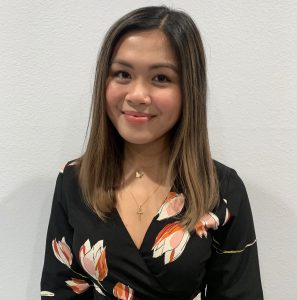
Ashlee Monton
My project examines the ways that memory and preservation of Filipino food traditions in the Research Triangle area deconstruct the normative ideas of what makes the South, “The South.” Filipino foodways offer a lens through which to challenge the idea of the South as a monolith due to its unique American colonial history. It is through including their experiences and traditions that we can attempt to define the “new Southern Studies,” one that nurtures all communities residing in this region.
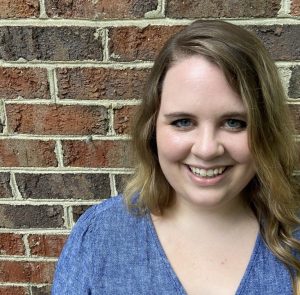
Leslie Rowen
Leslie Rowen is a PhD student in the Department of English and Comparative Literature at the University of North Carolina at Chapel Hill. This project uses a 1917 patient narrative from the Dorothea Dix State Hospital archives to reflect on questions central to the field of health humanities: What structures limit and obscure patient voice? How do we responsibly use archival sources to share patient experiences? What can a literary approach unlock in our understanding of patient narrative? The project will showcase the exceptional role North Carolina played in mental healthcare in the South in the nineteenth and early twentieth centuries. Little work of this nature has been completed related to the archives of Southern mental hospitals, giving this project the potential to demonstrate how the materials provided by the Dorothea Dix archive might be used to enrich our understanding of the South’s mental health history.
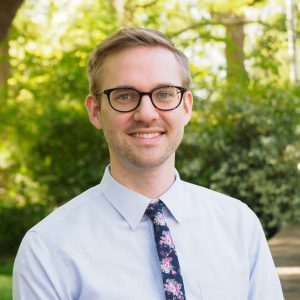
Kevin Smith
Kink, an umbrella terms for an array of radical erotic acts, is being increasingly recognized as a valid and consensual expression of sexual identity that provides personal fulfilment and a sense of community belonging. Despite this trend, kinksters continue to face stigma and discrimination in healthcare where many providers continue to pathologize it. Previous work with Southern kinksters indicates that the conservative, religious nature of the region increases the stigma they face. This study aims to qualitatively explore the healthcare and coming-out experiences of kinksters across the country, comparing those in the South with other, more kink-friendly regions.
